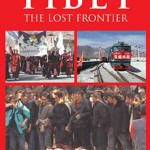The three-day (Nov.30—Dec 2, 2011) visit of Hillary Clinton, US Secretary of State, to Myanmar— the first by a US Secretary of State since the visit of Johan Foster Dulles in 1955— indicated the growing self-confidence of President Thein Sein that the cautious policy of domestic reforms and external opening-up initiated by him had the support of the serving military officers.
“¦have supported the Chinese stand on the South China Sea issue clearly indicated the keenness of the Myanmar Government to give a new orientation to its foreign policy..
This self-confidence came out clearly in the assurances reportedly conveyed by his Government to Mrs.Clinton that the reforms and opening-up are real and will be irreversible. The only threat to the new policy could have come from the serving military officers. The slow pace of the promised release of the political prisoners —200 plus released and about 1600 still in detention— had given rise to speculation regarding possible resistance from serving military officers to the proposed release of all the political prisoners. This speculation still persists since there have been no more releases for some weeks now.
However, the Government has been going ahead with its policy of political reconciliation with the pro-democracy forces led by Aung San Suu Kyi. Her National League for Democracy (NLD) has already decided to register itself as a political party to enable it to contest the bye-elections due in the coming months Suu Kyi is widely expected to contest one of them.
The policy of gradual opening-up initiated by the Government has three components— release of all political prisoners and relaxation of oppressive laws relating to media freedom and the right to hold public meetings and take out processions, facilitating the de jure induction of Suu Kyi and her NLD into the political process and mending relations with the West to pave the way for the removal of the economic sanctions imposed by them and the resumption of the flow of economic assistance from the West and international financial institutions like the World Bank and the International Monetary Fund.
China will continue to be an important factor in Myanmar for some years to come because of the economic dependence on Beijing and the close links between the armies of the two countries.
The visit of Mrs.Clinton so soon after the East Asia summit at Bali in Indonesia last month at which Myanmar and Cambodia were reportedly the only countries to have supported the Chinese stand on the South China Sea issue clearly indicated the keenness of the Myanmar Government to give a new orientation to its foreign policy despite its anxiety not to tread on the toes of China while so doing.
China will continue to be an important factor in Myanmar for some years to come because of the economic dependence on Beijing and the close links between the armies of the two countries. A peeved China can play a spoiler by instigating the pro-China military officers trained by the People’s Liberation Artmy (PLA) to resist any aspect of the new policy that may not be palatable to China.
Till the Western countries remove the economic sanctions and aid from the West and the international institutions starts flowing in again thereby enabling the Government to dilute its dependence on China, the Government cannot afford to ignore the likely concerns of China.
Beijing’s concerns relate not so much to the domestic political reforms as to the decisions of a strategic nature that may be taken by the Government under prodding from the US that could dilute the strategic primacy enjoyed by China in Myanmar. Vietnam and Myanmar are two countries of major concern to China from the point of view of its national security and Beijing will be closely monitoring the developments relating to the relations of the two countries with the US and India.




